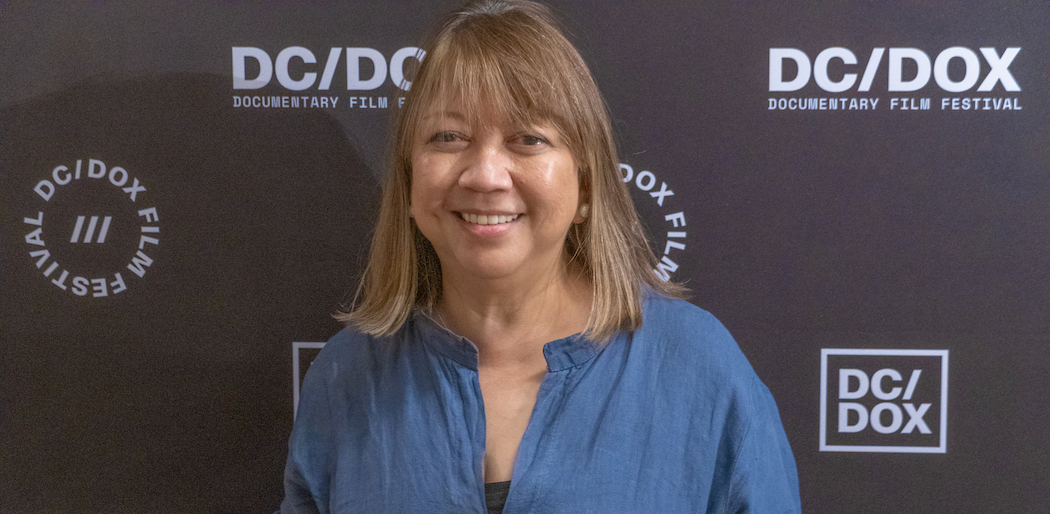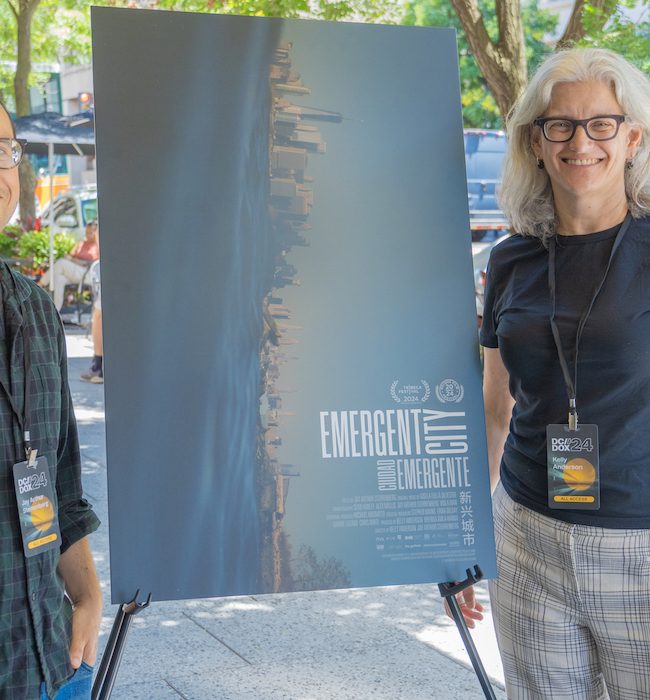A Conversation with Ramona Diaz (AND SO IT BEGINS)

Director Ramona Diaz (A Thousand Cuts) premiered her latest documentary about the Philippines, And So It Begins, at this year’s Sundance Film Festival (where I reviewed it). In the movie, Diaz covers the 2022 presidential election in that country, embedding herself with the campaign of the former vice president, Leni Robredo, as she runs for the highest office against Ferdinand Marcos Jr., popularly known as “Bongbong.” You can’t change actual events, and Bongbong wins. Yet Diaz still manages to craft an engaging film about liberal discontent with the repressive policies of the previous president, Rodrigo Duterte, all the while examining how the Marcos family has successfully rehabilitated the family name since the 1980s, when they were briefly banished from the Philippines after the authoritarian Marcos Sr. was overthrown. In addition, she continues to follow the story of Rappler journalist Maria Ressa, winner of the 2021 Nobel Peace Prize. I caught up with Diaz at DC/DOX 2024, where I moderated the post-screening Q&A. Here is a transcript of our conversation (before the audience questions), edited for length and clarity.
Hammer to Nail: This film feels in many ways like a sequel to your 2020 A Thousand Cuts. Do you see it that way?
Ramona Diaz: Well, it started as a sequel. But we didn’t call it a sequel because we were told that sequels in documentaries don’t work, so we called it a companion film. Raney Aronson-Rath at Frontline said, “Why don’t we do a follow-up to A Thousand Cuts? It’ll be an hour of television on Frontline about Maria.” That was really the start of this.
So I went back to the Philippines in 2021. It was still in lockdown. I had to quarantine for 14 days and we had to shut down every time someone got COVID. It was really incredible; we didn’t know whether we could make it or not. And we were filming with Maria, but then it became apparent to me that Leni Robredo was going to run and it was going to be against BBM—against Marcos—and everything Maria was talking about was being played out in real time. So I realized I had to also include that. It therefore became bigger and became a feature.
HtN: How much overlap was there in the production for the one film and the other? Was there footage intended for A Thousand Cuts that ended up here?
RD: No. There was none at all. A Thousand Cuts premiered at Sundance in 2020 and then of course the world shut down, but we released it during the pandemic. And that was done. And then we started shooting this in 2021 and 2022. So there’s no overlap at all.
HtN: It can be tough to make a compelling election-based, or competition-based, documentary from the point of view of those who have lost, especially when we already know the results. What did you see as the challenges of telling this story after your main character had not won her election?
RD: It was very important for me to end on hope. Hopelessness is not useful. Especially these days and given the context of where we are, I thought it was important to end on an up-note, even if she lost. When I was filming her, we were embedded with her, and at one point I really thought she would win. I drank the Kool-Aid. So it was devastating for me, as well, when she lost. But I said, “Somewhere in here, something has started, and it’s only the beginning.” Because that movement can go on, and people have to be reminded that they did something amazing. But also, losing is, in a way, a better story, because you learn in failure. You learn a lot of things when you fail.
HtN: As an educator, this is what I tell my students, that failure doesn’t have to be a negative, although in politics it’s different, because there are real consequences sometimes.
RD: For sure.

Our Chris Reed and filmmaker Ramona Diaz
HtN: One of the most fascinating—and dispiriting—aspects of your film is how we learn about the massive disinformation campaign the Marcos family has engaged in to alter the historical record, in terms of martial law and other things that Marcos Sr. did. This of course mirrors disinformation campaigns everywhere in the world; it’s not unique to the Philippines. But when did that begin in the Philippines? That Marcos museum we visit in the film just blew my mind.
RD: But that museum has been there for a long time. The minute the Marcoses left, they started wanting to go back. They had this plan to erase history, or revise it. They’re not even saying that there was no martial law, but rather that it was a “golden age.” And they started doing this from the minute they left. They were allowed to return, and I think that was a big mistake, but that’s a discussion for another day. And that’s when they started entering local politics. That was a failure of the 1986 revolution, to not then educate the people about what had happened. Believe it or not, the period of martial law was not taught in schools, or if it was taught, they just papered over it and it wasn’t a long lesson. So a lot of the youth don’t even know what happened. It’s a failure of education.
HtN: Disinformation campaign or not, I am still unclear on why so many folks chose Bongbong over Leni. Why do you think they did? In your film, it seems like Leni has a lot of the youth vote cornered. Is that the case, or only in the cities?
RD: I think she represented very much the promise of ’86 that failed. And Bongbong’s campaign just really sold this idea that the period of martial law was such a great time. They were very successful in that. And also, the messaging was that, “We’re going to give you gold if we win. You can buy rice, if we win.” It was just very simple. And what was Leni selling? Hope. And the color pink. (laughs) Maybe that was the wrong messaging, because all they needed to hear was, “We can buy rice tomorrow.”
HtN: So concrete promises trump abstract concepts like hope.
RD: Absolutely! Even if it’s so unlikely that they’re going to get gold, they still hope for it. But life must be so dire that you really believe you’re going to get gold.
HtN: Did you or your crew ever feel threatened as journalists the way Maria Ressa and the other folks at Rappler do?
RD: We felt more threatened doing A Thousand Cuts. Because when your main character is donning a bulletproof vest, you start to wonder, “Should we also do that?” And we did, and then realized that you can’t work with those on. Do you know how heavy they are? You can barely move, and you’re running after Maria? Forget it. So we decided, “You know what? Let’s leave it up to fate!”
But also, Duterte was losing power this time. Bongbong and the Marcos administration, in a way, are very sophisticated in terms of understanding that if he paid attention to me, that I would be more of a salient problem. Right? (laughs) He knows that. So it’s more like, “Just don’t mind them.”
HtN: And of course, you have a relationship, in some ways, with the Marcos family, because you made a film about Imelda.
RD: I’m not loved. (laughs)
HtN: You’re not? (laughs) But they know you.
RD: They do. I was actually not allowed to step foot in their rallies. I was persona non grata. But my crew snuck in.
HtN: What does the political landscape look like in the Philippines now, for Bongbong? I follow the news, and from outside, I know there are conflicts with China in the South China Sea, but what about internally? How is his administration doing?
RD: So Bongbong is the luckiest man alive, because he’s coming after Duterte. With Duterte, the bar was so low, that when Bongbong became president, even the press was happy. First of all, he dresses well, he doesn’t curse, and he shows up on time. So how low is that bar? And he speaks like a diplomat. And he really cares about the West and how he is seen here. He sees himself as a child of the West. He went to school here, sort of. He partied here. So he really cares about being seen as a diplomat, and the West is buying it.
But there are problems. Corruption is endemic, started by his father. And that is the worst legacy of the martial-law years.
– Christopher Llewellyn Reed (@ChrisReedFilm)











